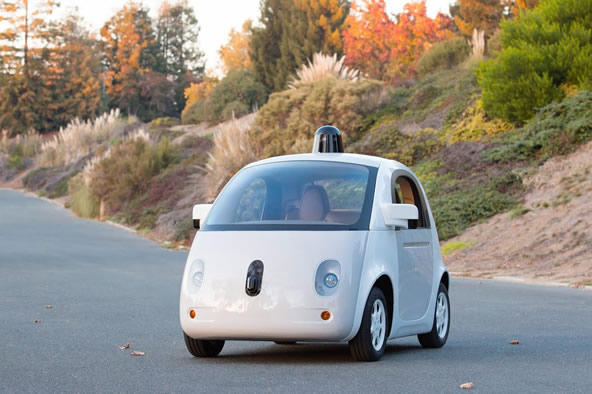Google’s Self-Driving Car Has Now Been Involved In 12 Accidents

The next generation of Google’s self driving car which is expected to hit streets this summer for testing.
Google has recently announced to its shareholders that another of its automated self driving vehicles has been involved in an accident as it was rear-ended last week increasing the total of accidents to 12 since the cars launch 6 years ago.
Brin Sergey, one of Googles co-founders said they would not release reports of the crashes to protect the anonymity of those involved, but did say “seven or eight times we were rear-ended”, whilst a human driving a test vehicle also rear-ended another car.
“Our greatest learning is that people don’t pay attention, even trained drivers.” he said. “The other three were situations where the car was not driving itself, we were at a stop light or we were sideswiped.” “I’m very proud of the record of our cars. We don’t claim to be perfect, our goal is to beat human drivers.”
Up to now none of the crashes have actually been caused by the self driving car according to their reports.
Google is planning to test the latest version of its self-driving car this summer in the streets of Mountain View and other public roads in the area. It is estimated around 25 of the pod-like, two-seat vehicles will be seen driving around at speeds up to 25 miles per hour.
In a letter released on Wednesday, Mr Brin added: “We hope to make roadways far safer and transportation far more affordable and accessible to those who can’t drive.”
The head of Google’s self-driving car project, Chris Urmson wrote in an online post that all the accidents have not been serious with “light damage, no injuries”.
It has been highlighted that Google needs to make information of any accidents as clear as possible. John Simpson, privacy project director of the non-profit Consumer Watchdog, has said that because Google’s ultimate goal is a car without a steering wheel or pedals, which cannot be controlled by a driver it is “even more important that the details of any accidents be made public — so people know what the heck’s going on”.
Their cameras, radar and laser sensors offer a greater understanding of the local environment making self-driving cars in theory safer than human drivers. Some of the new technologies which can be built in include a heightened response time, automatic tension of seat belts and automated horn beeps and headlight flashes.
Florida, Nevada and Michigan have passed laws welcoming tests of self-driving cars on their roads. Five other companies who hold testing permits have stated they have had no accidents. In total there are 48 cars licensed to test the self-driving technology on US roads.
A pioneer for the technology, Raj Rajkumar from Carnegie Mellon University has said the most important task at the moment is avoiding serious accidents which could stop testing licenses from being issued and delay the launch of such vehicles.
The National Highway Traffic Safety Administration has said the national rate for reported “property-damage-only crashes” is 0.3 accidents per 100,000 miles. Google’s 11 accidents over 1.7m miles totals to 0.6 accidents per 100,000, worse than the average but as company officials noted, it’s believed up to 5 million minor accidents are not officially reported each year, so it is hard to gauge what the true numbers actually are.





